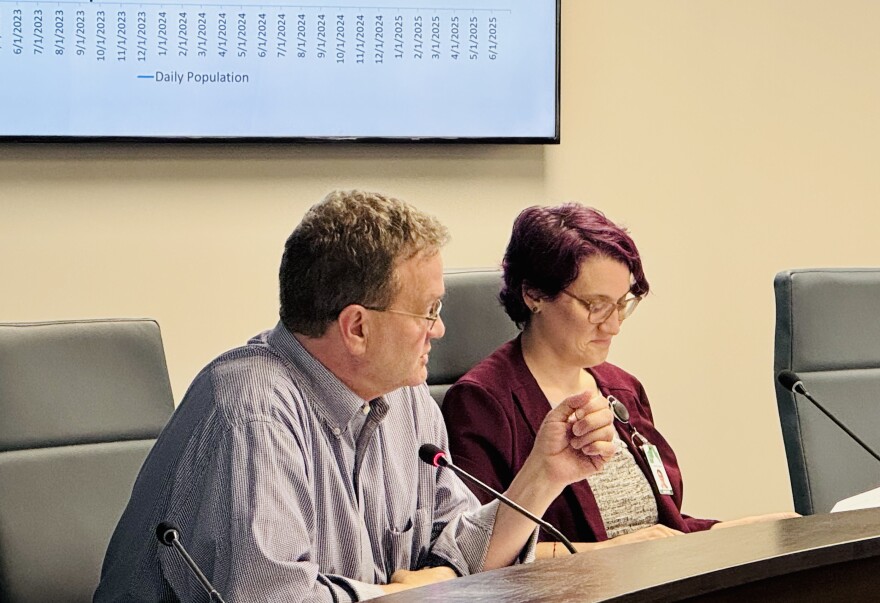The McLean County jail is the county’s largest provider of mental health services, according to data presented at last week's quarterly meeting of the Criminal Justice Coordinating Council [CJCC].
Law enforcement first heard data regarding emerging adults, indicating 18- to 25-year-olds are disproportionally arrested and increasingly charged for unlawful firearm use.
In a presentation to the council, sociologist Frank Beck from Illinois State University’s Stevenson Center said more than half of the jail population has a mental or behavioral health condition. Beck has brought that data point before the council in previous meetings, but felt it was important to reiterate.
“The point is, it’s over 50%,” he said, saying jail staff have noticed a change since 2023.
Beck said mental health programming at the jail is one of the topics the Stevenson Center is studying right now. And the county will eventually undergo an audit of the sales tax fund used for mental health and public safety — a large portion of which has gone to the jail.
Bloomington and Normal have voted to pause distributing a quarter of the 1% sales tax to the county until that audit is complete.
McLean County Board Chair Elizabeth Johnston opposes a pause, saying much of the fund’s $20 million surplus is earmarked for projects already underway.
Effect of cashless bail
About 200 people were detained at McLean County jail prior to implementation of the Pretrial Fairness Act [PFA] eliminating cash bail in Illinois. After an initial drop to about 150 detainees, Beck said the population has nearly returned to pre-PFA levels.
What has changed is the percentage of that population with felony charges, which is over 90%.
“Going back to a previous lifetime in 2008, it was 73% felons,” said Beck. “There’s a ceiling; it’s not going to go above 100. But it’s at 90% and pretty steady the last couple years.”
Behavioral health plan update
After Beck, Behavioral Health Coordinating Council [BHCC] director Marita Landreth gave an update to the county’s work on developing a Behavioral Health Action Plan that aims to identify and assess the state of mental health care in McLean County and develop strategies for supporting residents with mental health needs.
The council has worked in fits and starts, restructuring and separating from the county board.
In recent meetings, they opted to rename their Mental Health Action Plan.
“We’re going back to calling it the Behavioral Health Action Plan to more accurately reflect the scope of the actions in that plan,” said Landreth, adding the BHCC has been focused on revising the plan for the past five months and now has a working draft.
“Across the board, the group has been interested in taking where we’ve been and the great information that previous iterations of the report have had, but really stepping forward, thinking about where we’ve been and looking ahead,” she said.
Landreth said an update to the BHCC is focused on brevity and accessibility.
“We really want this document to be accessible to the whole community,” she said, “so that anyone who reads this, whether they work in mental health services, whether they receive mental health services, whether they’re working at Walmart — whatever it is — they can look at this report and see themselves in it.”


